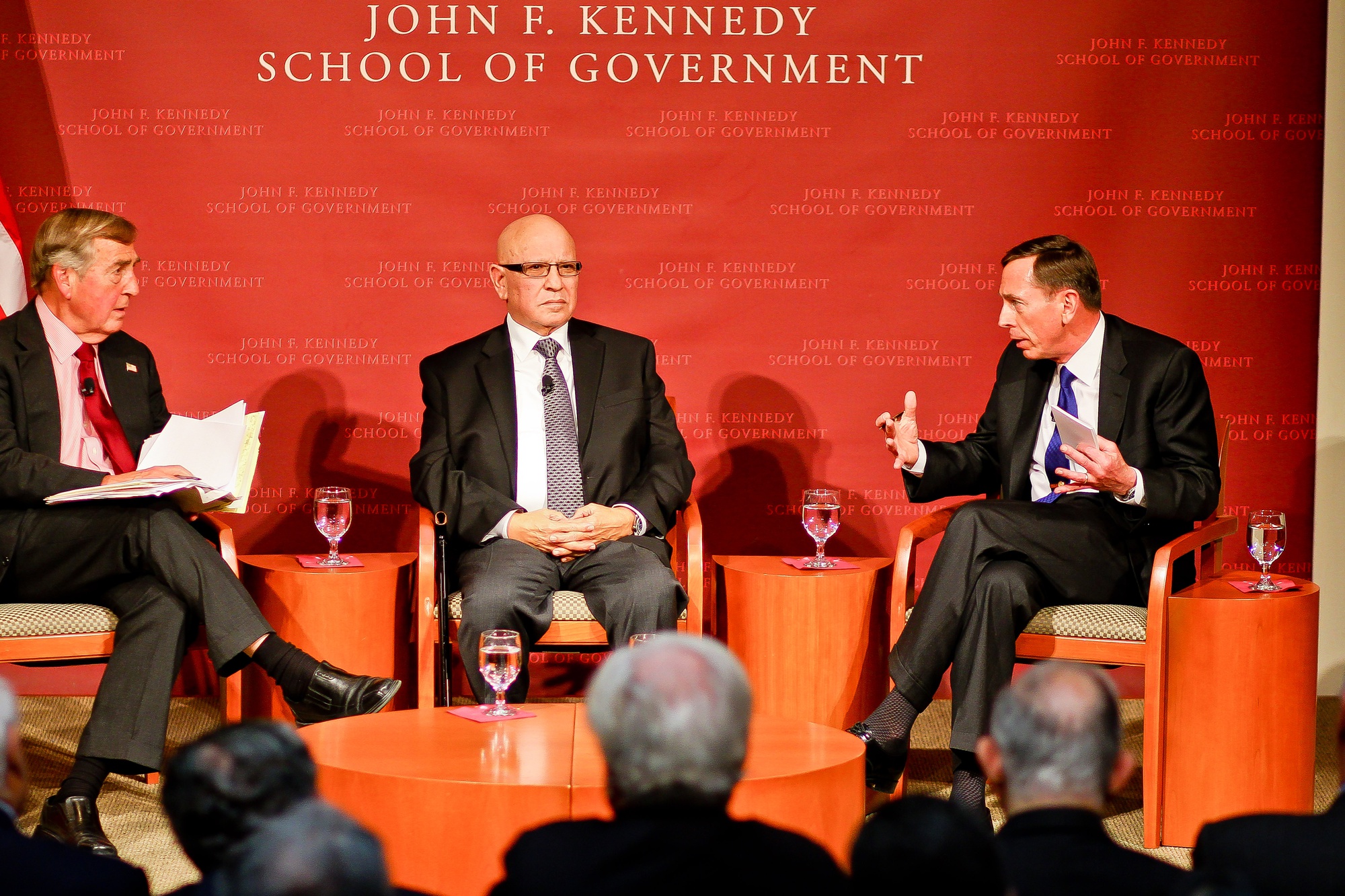
News
Summers Will Not Finish Semester of Teaching as Harvard Investigates Epstein Ties

News
Harvard College Students Report Favoring Divestment from Israel in HUA Survey

News
‘He Should Resign’: Harvard Undergrads Take Hard Line Against Summers Over Epstein Scandal

News
Harvard To Launch New Investigation Into Epstein’s Ties to Summers, Other University Affiliates

News
Harvard Students To Vote on Divestment From Israel in Inaugural HUA Election Survey
Former CIA and Mossad Directors Discuss Israeli-Palestinian Conflict, Middle East Situation

Four days after Secretary of State John F. Kerry called for a “reality check” on the Israeli-Palestinian peace process, former director of the CIA David H. Petraeus and Meir Dagan, former director of Israel’s intelligence service, the Mossad, analyzed the prospects for future peace in the Middle East at the John F. Kennedy Jr. Forum on Monday.
The panelists agreed that a sustainable resolution to the Israeli-Palestinian conflict is still some time away. Dagan began the conversation by asserting his opinion that the Palestinians are unwilling to make any immediate compromises, a result of what he calls the “legacy of [Yasser] Arafat.”
Dagan said that creating peace between Israel and Palestine requires more than just agreement between the two states. For a lasting settlement, he said, Saudi Arabia, Morocco, Jordan, and other surrounding countries would have to come to an agreement about the rights to holy places in the region that are important to both the Jewish and Muslim religions.
“It’s not something like sitting around the table and solving the problem. It’s much more complicated,” Dagan said.
According to Petraeus, the once widely held Israeli view that the current situation is not sustainable has become less prevalent due to Israel’s strengthening security forces. Petraeus said that Israel’s Iron Dome missile defense system, border walls, and security checkpoints have shielded Israel from many of the attacks and suicide bombers that were a daily occurrence a decade ago.
“I’m not so sure the status-quo from Israel’s perspective is not sustainable. You have now the best security that Israel has had in a number of years, if not longer,” Petraeus, who is now a senior fellow at the Belfer Center, said.
Dagan and Petraeus agreed that although increased security measures could allow the status-quo to be sustainable, it is not preferable.
“There is a real desire from both sides to reach eventually a peace agreement,” Dagan said.
Graham T. Allison ’62, the Director of the Belfer Center for Science and International Affairs at the Kennedy School, moderated the forum and described it as “a historic occasion” bringing together two “genuine legends, dedicated heroes, warriors, and serious strategic thinkers.”
The event’s attendance was one of the largest of the semester. The Forum filled up completely prior to the 6 p.m. start, forcing several attendees to stand along the back walls. Former President of Mexico Felipe Calderón, who was an IOP fellow in 2013, was among those in attendance.
According to Nathan R. Betcher, a student at the Kennedy School, the two former generals left many questions unanswered and failed to get to the crux of the Israeli-Palestinian issue.
“There are fundamental limitations of course that were left with regard to what the actual concessions would be from both sides in coming to a sustainable, two-state solution,” Betcher said.
—Staff writer Forrest K. Lewis can be reached at forrest.lewis@thecrimson.com.
Want to keep up with breaking news? Subscribe to our email newsletter.
